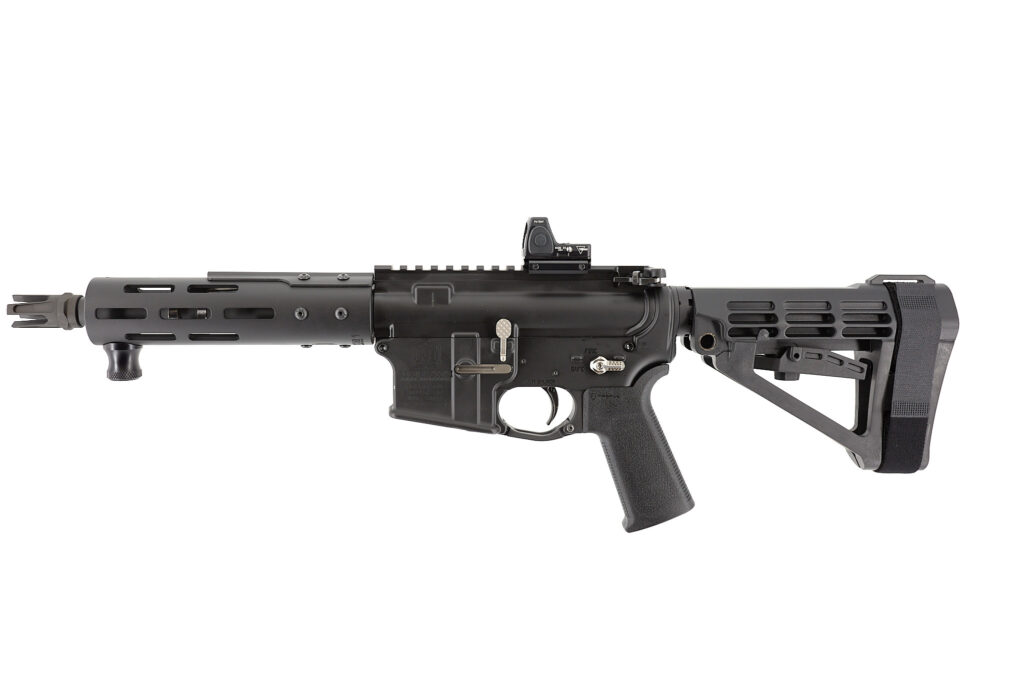In 2023, the ATF introduced a new rule pertaining to pistol braces. This rule effectively reclassified weapons equipped with pistol braces as Short Barreled Rifles (SBRs). This is a departure from their previous classification as Pistols. SBRs fall under the jurisdiction of the National Firearms Act (NFA) and legal ownership necessitates a special ATF form and tax stamp. SBRs may also be subject to state or local regulations that differ from those for Pistols.
There was a grace period, which concluded last month. During which existing owners of a Pistol with a brace could file the ATF form to obtain their SBR tax stamp without the $200 fee. Presently, if you own a weapon with a pistol brace and do not have a tax stamp, you must remove and dispose of the brace. Alternatively, you can submit an ATF Form 1 to legally convert your Pistol into an SBR. You should dispose of the pistol brace until the approval of your Form 1 is received.
Why Is This Bad?
The recent regulatory decision presents a number of troubling issues that I wish to outline without indulging in excessive tirades. Firstly, the Bureau of Alcohol, Tobacco, Firearms and Explosives (ATF) has suddenly, and without providing an adequate opportunity for feedback, imposed regulations that potentially categorize millions of law-abiding American citizens as offenders. Note that the ATF had previously categorized firearms, such as the AR-15 equipped with a pistol brace, as a ‘Pistol’ without ambiguity. Therefore, this wasn’t a covert, backdoor maneuver. Instead, the ATF openly made this categorization, which they have now completely reversed..
Secondly, these restrictions will not reduce crime or violence effectively. Criminals do not use short-barreled firearms more often. These laws mainly affect those who abide by the law, as with many gun laws. Suppose a criminal wants a short-barreled rifle. They can buy a short barrel easily. They can even shorten a long barrel with little effort and quickly.
This leaves the rest of the populace subject to onerous regulations, including a $200 payment to the government, submission of forms complete with fingerprints and photographs, and enduring a lengthy waiting period. This is not an effective or fair approach to regulating firearms.
What Should You Do?
I’m not a lawyer, and I can’t advise you on what the details of the ruling are, your potential risks or exposure, or what makes sense for you. I recommend consulting with your local gun shop or attorney.
I strongly recommend joining the FPC. They a great gun rights organization, but there’s a bonus! FPC members appear to be exempt from this new rule, at least for now (based on a Fifth Circuit Injunction).

